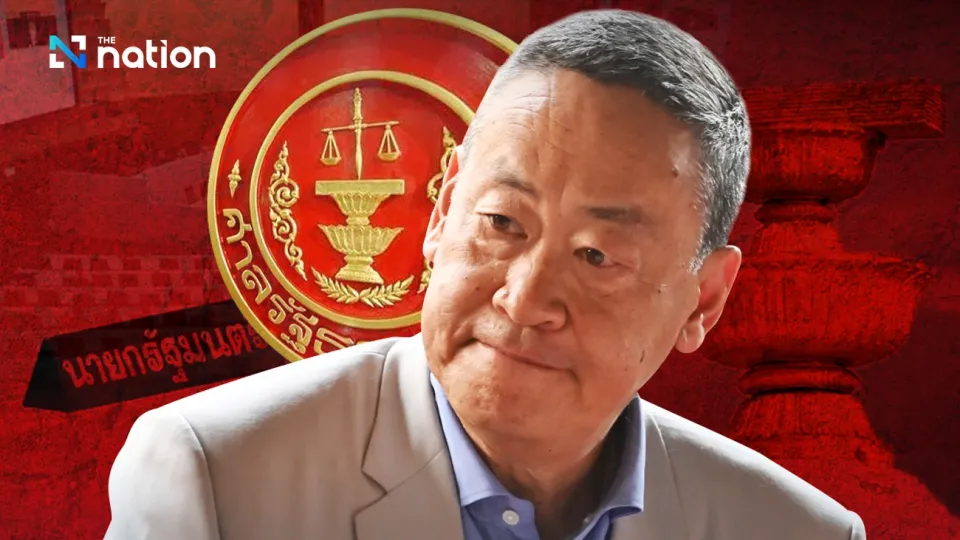August 15, 2024
BANGKOK – The Constitutional Court on Wednesday unseated Srettha Thavisin from the post of prime minister, stating in its verdict that he lacked integrity to hold the top government post because of his decision to appoint an unqualified person as one of his Cabinet members.
The nine Constitutional Court judges voted 5:4 to remove Srettha from office immediately and his Cabinet became a caretaker one pending the appointment of a new prime minister.
In their verdict, the judges said Srettha clearly showed lack of integrity when he decided to appoint Pichit Cheunban as a PM’s Office minister in his Cabinet reshuffle on April 27 this year, despite knowing that the appointee was disqualified for the post as he was dishonest and had been jailed in 2008 for allegedly attempting to bribe Supreme Court officials.
The court took up a petition by a group of 40 outgoing senators who accused Srettha of breaching the ethical standards for political office holders by appointing Pichit as a Cabinet member despite his questionable background.
The former senators did not attend the verdict reading and Srettha sent PM’s secretary-general Prommin Lertusuridej to hear the verdict on his behalf.
In the verdict, the court said that the 40 former senators had the authority to seek the court ruling and the court also had authority to interpret the facts and legal technicalities as to whether political office holders lacked integrity or violated ethical standards.
The court noted that the Constitution has formulated mechanisms to check and prevent persons without ethical standards and good governance from running the country’s administration.
The verdict said Cabinet members are required by the charter to have higher ethical standards and qualifications than MPs.
The court said they found it unreasonable for Srettha to claim that he was a businessman and had limited knowledge and experience in law and politics to realise that Pichit was not qualified for a Cabinet post.
The verdict said as the government leader, Srettha should have used his common sense and as a sane person realised that Pichit clearly lacked integrity to become a Cabinet member because he and two accomplices were once jailed for six months for trying to bribe court officials.
The verdict said the clerk of Pichit, who was then defending former prime minister Thaksin Shinawatra in a corruption case, gave a bag with 2 million baht inside to a Supreme Court official. The verdict said the clerk definitely knew the money was inside and Pichit definitely knew about the act of his clerk.
The verdict said the bribery attempt was well known to members of the public and that Pichit had insulted the court and judge and his act showed a lack of respect for the court’s power, affecting the confidence in the Thai judiciary system.
The verdict said Srettha “knew all of the facts but still appointed the second defendant as the PM’s Office minister in the Royal Command while appointing ministers dated April 27, 2024. The first defendant [Srettha] is, as a result, ruled to clearly lack integrity and thus, lacking qualifications to become the prime minister in accordance with Article 160 (4) of the Constitution.”
The verdict also mentioned that Srettha once visited “the person the second defendant used to defend in a court”, in an apparent reference to Thaksin, and then changed his mind to appoint Pichit to the Cabinet.
The verdict said this fact showed that Srettha allowed personal and vested interest to have priority over national interest and it was also a conflict of interest.
The court said the act also showed that Srettha had allowed his post and power as the prime minister to be compromised for vested interests, so he clearly lacked integrity to remain as the prime minister.
“The majority judges (5 to 4) interpreted that the premiership of the first defendant was terminated in accordance with Article 170 (4) of the charter for lacking clear integrity, and lacking qualifications as stated in Article 160 (4). And he behaved in a way that severely violated the ethical standards, which violated Article 160 (5) of the Constitution,” the verdict said.
The ruling is expected to bring changes to the political landscape, as the new prime minister will have to be elected in the House, and there could be a realignment of the coalition, according to observers.


